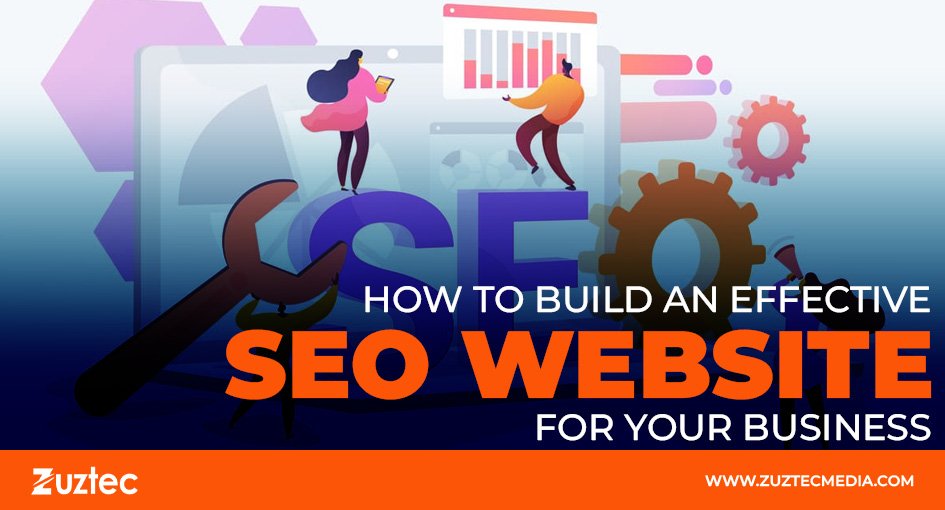
How To Build An Effective SEO Website For Your Business
Creating a strong online presence starts with a well-optimized website. Whether you’re a small business owner or an entrepreneur launching a new project, having an SEO website is one of the smartest investments you can make. Search engine optimization (SEO) helps your website appear in search results when people look for your services or products online, driving organic traffic and potential customers to your site.
The concept of SEO may seem technical or overwhelming at first, but it’s built on straightforward principles: make your website useful, fast, easy to navigate, and relevant to what people are searching for. Once you understand these basics, applying them becomes part of your routine digital marketing strategy.
An SEO-friendly website combines clean code, high-quality content, responsive design, and proper keyword targeting. If your site doesn’t show up when someone searches for your business niche, you’re essentially invisible in the digital space. By focusing on SEO from the start, you increase your chances of reaching the right audience without paying for constant ads.
In today’s competitive digital environment, it’s not enough to just have a website—you need a website that works for you. Throughout this article, you’ll learn the key elements of creating and maintaining a website that delivers long-term success and visibility.
Understanding The Basics Of An SEO Website
It is designed and developed with search engines in mind, making it easier for Google and other platforms to crawl, index, and rank its pages. This doesn’t mean sacrificing user experience—in fact, most SEO best practices align with improving usability, speed, and content clarity.
Start by focusing on your site’s structure. An organized layout helps search engines understand your content hierarchy. Use clear headings, proper URL formatting, and internal links to connect related pages. This makes your site easier to navigate and helps distribute page authority across different parts of your website.
Page speed is another essential factor. If your site takes too long to load, visitors will leave before engaging, and search engines may penalize your rankings. Content is at the heart of SEO. Every page should be built around a focused keyword or topic. Make sure your copy answers the visitor’s question or need, and don’t overuse keywords—search engines prefer natural language that reads smoothly.
Why SEO Matters More Than Ever For Online Visibility
The internet is filled with millions of websites, but only a few make it to the top of search results. A well-optimized website has the power to drive organic traffic for free, 24/7, bringing in new leads without ongoing ad spend. Having a strong SEO foundation ensures that your website aligns with those criteria. This includes having clear and relevant content, properly optimized images, and trustworthy backlinks.
One big advantage of SEO is sustainability. While paid ads stop delivering results once your budget runs out, SEO keeps working in the background. With consistent updates and ongoing improvements, your website can remain on top of the search results for months or years.
In the midbody of your strategy, consider targeting long-tail keywords. These are more specific phrases that may have lower search volume but usually carry higher intent. For example, instead of trying to rank for “shoes,” go for “best running shoes for flat feet.” You’ll face less competition and attract more qualified visitors.
Don’t forget local SEO. If your business serves a specific area, optimizing your site for local terms and setting up your Google Business Profile can significantly increase visibility for nearby searches.
Key Features Every Website Optimization Should Include
When building or improving your website, aim to include features that support SEO performance. First, a user-friendly design is crucial. Keep your layout clean, navigation simple, and use visual elements to guide users through your content.
Use SEO website plugins or built-in tools if you’re on platforms like WordPress. These can help you manage on-page elements such as meta tags, alt text, sitemaps, and redirects without needing advanced coding knowledge.
Secure your site with HTTPS. Google considers website security as a ranking factor, and visitors are more likely to trust sites with a padlock icon in the browser.
Maintaining And Growing Your SEO Results Over Time
Once your website is optimized, the next step is maintaining your results. SEO is a long-term process that evolves as search engine algorithms change and user behaviors shift. Keeping your site active and up to date is key to ongoing success.
Continue publishing high-quality content. Start a blog that answers common questions, shares industry news, or offers tips relevant to your audience. This not only boosts your keyword presence but also keeps users engaged and coming back for more.
Focus on building quality backlinks. Reach out to other websites in your niche for collaborations, guest posts, or mentions. A strong link profile increases your website’s credibility and helps it rank higher over time.
In conclusion, whether you’re launching a new site or refining an existing one, making it an effective seo website ensures you get found by your audience and stay competitive in your industry.

